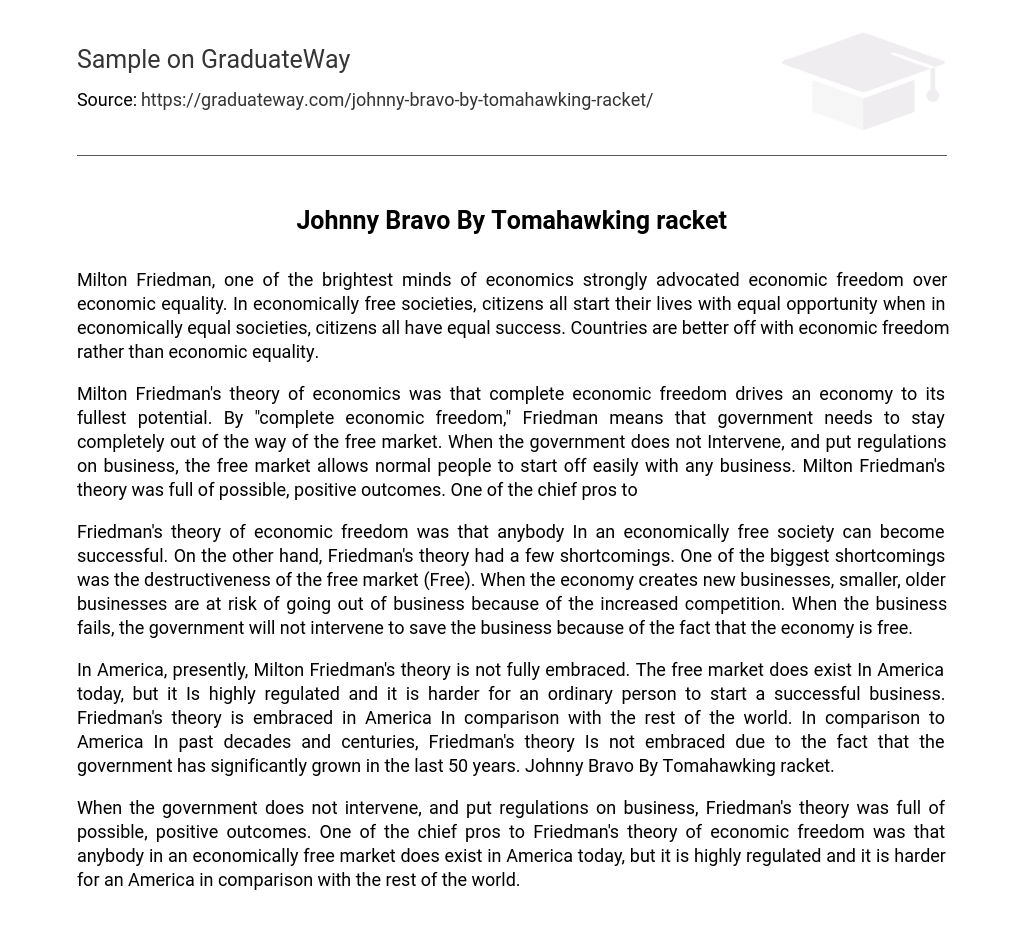Milton Friedman, a prominent economist, strongly advocated for economic freedom over economic equality. He argued that in societies with economic freedom, all citizens have equal opportunities at the start of their lives, while in economically equal societies, citizens have equal levels of success. Therefore, countries are better off prioritizing economic freedom rather than economic equality.
Milton Friedman believed that allowing complete economic freedom enables an economy to reach its maximum potential. According to Friedman, complete economic freedom refers to the absence of government intervention and regulations on businesses. By removing these barriers, the free market provides equal opportunities for everyone to start their own businesses. Friedman’s theory offers numerous potential benefits and advantages.
According to Friedman, economic freedom allows anyone in society to achieve success. However, his theory also acknowledges some limitations. One significant drawback is the potential harm caused by the free market (Free). As new businesses emerge, smaller and older ones face an increased risk of failure due to heightened competition. In an economically free system, the government does not intervene to rescue failing businesses.
Currently in America, Milton Friedman’s theory is not completely accepted. While there is still a free market, it is heavily regulated and it has become more difficult for regular individuals to establish successful businesses. Nonetheless, Friedman’s theory is relatively more embraced in America compared to other countries. However, compared to previous decades and centuries in America, Friedman’s theory is not widely accepted anymore due to the significant growth of the government over the last 50 years.
Johnny Bravo By Tomahawking racket.
When the government does not intervene and regulate business, Friedman’s theory of economic freedom holds various potential benefits. One significant advantage of this theory is its inclusivity in allowing anyone to participate in an economically free market. However, the current state of the American market involves extensive regulation, leading to greater challenges for Americans compared to individuals in other regions.





